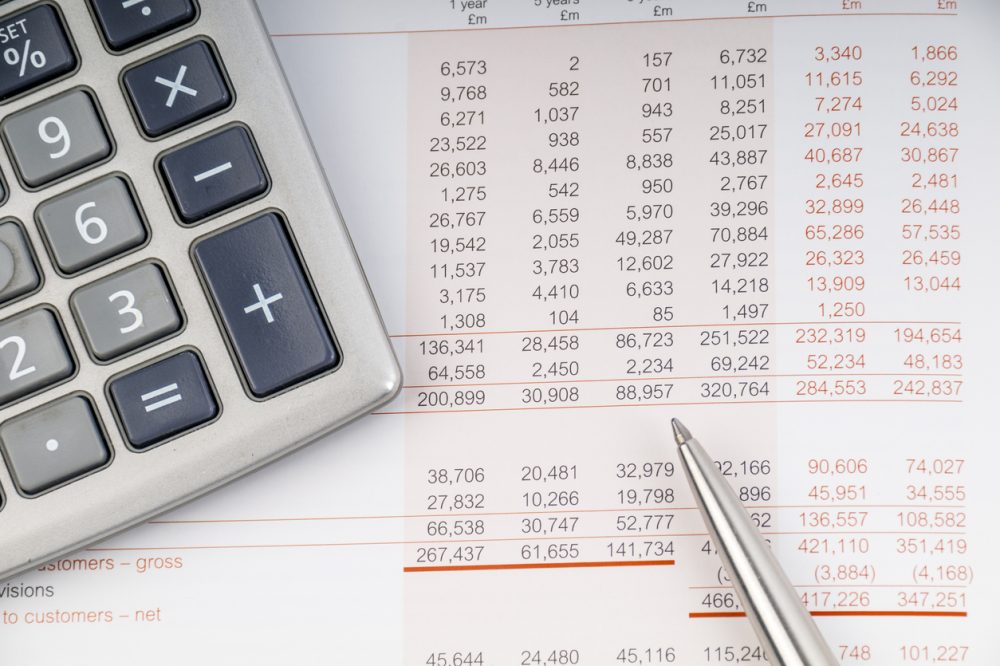Financial Health Pulse® 2022 U.S. Trends Report
Our 2022 U.S. Trends Report tells a far different story than prior years. Data from the nationally representative probability-based Pulse survey, fielded in April and May 2022, show that financial health declined for the first time in the project’s five-year history.
Financial Health Pulse Research 2022
2022 marked the five-year anniversary of the Financial Health Pulse® as a leading resource for insights on the financial well-being of people across America. This year also brought historic challenges to financial health, as the percentage of Financially Healthy people declined for the first time in Pulse’s five-year history.
Financial Health Pulse Research 2021
In the second year of the COVID-19 pandemic, consumers continued to face disruptions and impacts to their financial health. Through analysis of transaction and survey data, these reports and briefs explore trends around pandemic relief, emergency savings, medical and caregiving needs, and disparities among socioeconomic groups.
Financial Health Pulse Research 2020
2022 marked the five-year anniversary of the Financial Health Pulse as a leading resource for insights on the financial well-being of people across America. This year also brought historic challenges to financial health, as the percentage of Financially Healthy people declined for the first time in Pulse’s five-year history.
Financial Health Pulse Research 2019
Despite a strong year of economic growth, the financial health of Americans have not changed significantly since the past year. Through analysis of transaction and survey data, these reports and briefs highlight how a majority of Americans continue to struggle financially and remain unprepared for financial shocks.
Financial Health Pulse Research 2018
The first-ever Pulse report was designed as an annual benchmarking survey and financial data analysis that could provide recurring insights into the ever-changing nature of Americans’ financial health. Bringing together all aspects of a person’s financial advice via survey analysis, these reports and briefs tell a holistic story of the state of America's financial health.
When to Use Survey and Administrative Data for Financial Health Measurement: Lessons from the Financial Health Pulse
Combining survey and administrative data can offer more nuanced insights for financial institutions on customer needs and potential solutions.
Pulse Points: Savings Dwindled as Spending Increased in Q4 2021
Consumers spent more money on recreation and eating out during the 2021 holiday season than during the 2020 holiday season, but many remain vulnerable as government relief programs expire and inflation continues. This brief examines the factors that may shape financial health in the early months of 2022.
Financial Health Research: Expanding Our DEI Lens
As part of our DEI commitment, the Financial Health Network is updating our survey questions and analysis around ethnicity, gender, LGBTQIA+ status, and ability.
Pulse Points Fall 2021: How Families Are Using Child Tax Credits
New Pulse transactional data suggests that child tax credit payments have had a positive financial impact on recipients, particularly those who experienced hardship in the past.
Financial Uncertainty in America: 2021 Financial Health Pulse Shows Government Aid Improved Financial Health but Gains at Risk as Relief Programs Subside and Pandemic Lingers
Two-thirds of Americans still financially unhealthy with particular challenges facing women, LGBTQ+ communities, and people with disabilities; inequities remain by race and gender.
Financial Health Pulse: 2021 U.S. Trends Report
Discover how Americans’ financial health outcomes have changed as COVID-19 continued to create unprecedented disruptions.
Pulse Data Download
Emergency Savings, Combined with Support Networks, Reduced Hardships During the Pandemic
This research was produced by the Financial Health Network in collaboration with BlackRock’s Emergency Savings Initiative. ESI is a cross-sector program with a mission to help people living on low to moderate incomes gain access to and increase usage of proven savings strategies and tools – ultimately helping them establish an important safety net.
Unpaid and Unprotected: How the Lack of Paid Leave for Medical and Caregiving Purposes Impacts Financial Health
Paid leave for medical and caregiving purposes can help workers cope in challenging times.
Pulse Points Summer 2021: The Impact of Stimulus Payments and Reopening the Economy
From April 1 to June 30, 2021, Americans balanced saving and new spending opportunities, with minimal changes in earned income.
Appendix: Unpaid and Unprotected
Account Balances
Liquid account balances trended downward over the period of April 1 – June 30, 2021. This was likely due to individuals spending down high balances, which were caused by stimulus payments and tax refunds. Balances in accounts owned by Financially Healthy individuals continued to be higher than those in accounts owned by Financially Coping or Financially Vulnerable individuals. In addition, those with household incomes above $100,000 had consistently higher balances than those with lower incomes.
On the Front Lines: How LMI Workers Coped During the COVID-19 Pandemic
Key Finding: Low- to moderate-income (LMI) frontline workers are less likely to be Financially Healthy than non-frontline LMI workers.
Pulse Points Spring 2021: The Effects of Stimulus Payments and Tax Refunds on Consumer Finances
Stimulus payments and tax refunds caused account inflows to spike 33% in January and 42% in March, according to analysis from our new Pulse Points series.
Financial Health Pulse Explore
The Financial Health Pulse® is a research initiative that draws on survey and administrative data to offer insight into Americans’ financial health.
Financial Health Pulse
The Financial Health Pulse® uses ongoing surveys and transaction data to provide regular updates and actionable insights about financial health in America.
New Pulse Data Shows Stimulus Payments Jump Started Spending But Funds Slowest to Reach Low-Income Individuals
Chicago, IL, May 20, 2021 (GLOBE NEWSWIRE) — The Financial Health Network, the nation’s authority on financial health, with support from the Citi Foundation, today released its first Financial Health Pulse Points brief featuring transactional data that highlights the effects of the two federal stimulus payments and tax refunds issued in early 2021 on account […]
3 Takeaways from EMERGE Workplace
The pandemic has made it clear that workplace benefits are evolving. As Harvard Business Review recently reported, the vast majority of leaders are planning to expand benefits as a result of the COVID-19. What should your organization be considering? We designed our inaugural EMERGE…
Roger Hochschild: Discover the Possibilities
In 1986, Discover introduced the concept of cashback rewards on a credit card with no annual fee, transforming the landscape of credit for good. No longer reserved for the privileged few, credit cards became an everyday tool in most wallets. In this episode, Jennifer sits down with Discover CEO and President Roger Hochschild to dig into his passion for helping the underserved. Find out how his company is backing its words with action to drive real social change and bring about a better future.
New Financial Health Pulse Data Shows Millions of Americans Still Financially Struggling Amid Ongoing Pandemic
Food insecurity and fear of eviction pervasive among those hardest hit financially by pandemic with many borrowing money or cutting back on healthcare visits and medication
One Year into the Pandemic, Millions of Americans Still Struggling
Since the last Pulse survey in August 2020, more people are struggling to afford healthcare, which may lead to long-term health consequences beyond those created directly by COVID-19.
The U.S. Financial Health Pulse: A Roadmap for Recovery
As vaccines roll out across the country, the Biden administration is considering bold policies to help struggling households, businesses, and communities recover from the health and economic impacts of the COVID-19 pandemic. For these efforts to be successful, the new administration – along with businesses, employers, and other stakeholders –…
The 4 Phases of the COVID-19 Economy – What Comes Next?
With the arrival of a new administration in D.C. in a few weeks, it’s time to refocus on what Americans need now to support their financial health. Our recently released 2020 Trends Report found that many Americans were able to cope during the pandemic largely because of…
Financial Health in a Pandemic: Member-Exclusive Insights from the U.S. Financial Health Pulse
Join the authors of the new U.S. Financial Health Pulse 2020 Trends Report for an exclusive, early-access discussion exploring how consumers fared financially during the first six months of the pandemic.
The Financial Lives of Young Adults: Exploring Disparities by Race and Ethnicity
Despite being the most diverse group in the nation’s history, today’s young adults are often viewed as a monolithic group. A detailed look at their financial health tells a different story, however. Join us to explore key findings from the recently released report “Race, Ethnicity, and the Financial Lives of Young Adults,” along with solutions that can dismantle systemic barriers and improve financial health for all.
‘A Tale of Two Americas’: New Data from the 2020 U.S. Financial Health Pulse
“It was the best of times, it was the worst of times.” The opening lines of Charles Dickens’ iconic novel A Tale of Two Cities perfectly capture the paradoxical nature of this moment in time. Since March, the news has often featured contradictory narratives about the impact of the ongoing pandemic on people’s financial lives….
Financial Health in a Pandemic
How has the economic fallout from COVID-19 disproportionately impacted the financial health of different groups of people in America? In this conversation with Urban Institute CEO Sarah Rosen Wartell, we take a deep dive into the pandemic’s impact on financial health.
2020 U.S. Financial Health Pulse Data Shows A Tale of Two Americas: Gap Widens Between Financially Healthy and Vulnerable Populations
Chicago, IL, Oct. 13, 2020 (GLOBE NEWSWIRE) — The Financial Health Network, the nation’s authority on financial health, in partnership with Flourish Ventures, MetLife Foundation, and AARP, today released the U.S. Financial Health Pulse 2020 Trends Report, revealing an uneven impact to financial health over the last year. While the topline data shows 33% of people […]
U.S. Financial Health Pulse: 2020 Trends Report
Discover key findings from the 2020 U.S. Financial Health Pulse regarding Americans' financial health, including profound disparities across race and ethnicity.
Race, Ethnicity, and the Financial Lives of Young Adults
Young adults of color, particularly those who are Black and Latinx, have borne a disproportionate share of economic hardship, as decades of systemic racism have made their communities more vulnerable to the effects of these crises.


































